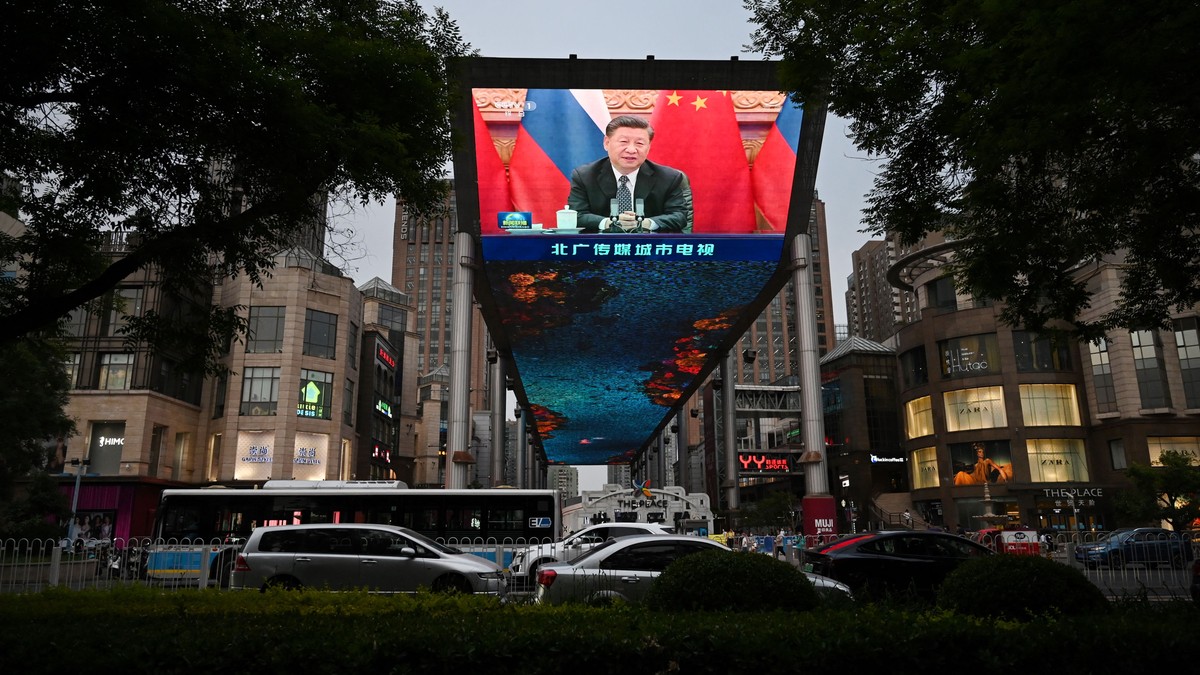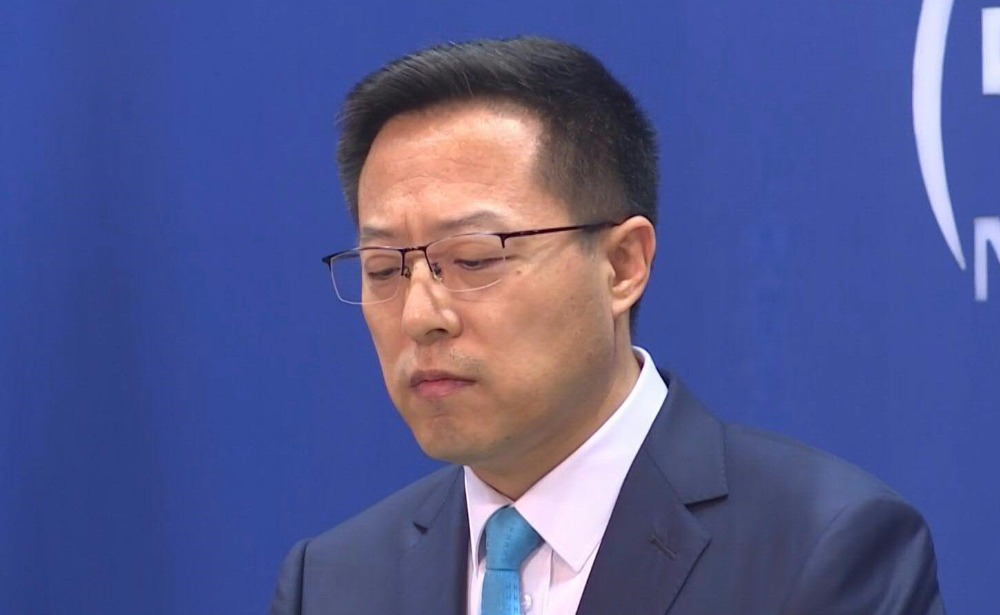[ad_1]
Whereas many governments elsewhere seem resigned to “sliding into the lengthy pandemic defeat,” these in China proceed to battle COVID-19 with an array of weapons together with mass testing, smartphone-based well being codes, and district-wide lockdowns. The purpose of “dynamic zero” case counts is ready by the central authorities, however as is usually the case, choices about the right way to pursue it are left to authorities all the way down to essentially the most native ranges. These touring across the nation should subsequently navigate an unpredictable, opaque, and typically arbitrary mosaic of insurance policies and restrictions. Some long-haul truck drivers, for instance, have discovered themselves taped into their cabs for days after operating into obligatory native isolation necessities by an unfortunate selection of freeway exit.
Final week, authorities in Hong Kong introduced a brand new addition to their arsenal: digital monitoring bracelets to observe adherence to isolation necessities. The units sparked fast questions on privateness and dangers of deterring folks from testing or reporting outcomes. Some native authorities in Beijing, in the meantime, immediately started distributing related trackers, typically in the course of the evening. On prime of comparable considerations to these voiced in Hong Kong, the absence of any formally introduced requirement led to suspicion that the rollout may be pushed by company profiteering fairly than official coverage. The backlash introduced predictable on-line censorship, but additionally the bracelets’ withdrawal. The distinction between sharp reversal in Beijing and Hong Kong’s unshifting course has fueled arguments that the latter’s residents now dwell underneath tighter management, in some respects, than their counterparts on the Chinese language mainland.
Manya Koetse posted an summary of occasions in Beijing and the encompassing controversy at What’s On Weibo:
“Final week, I went on a piece journey to Guangzhou and earlier than I returned to Beijing I did the nucleic acid assessments in time. I additionally reported my house isolation to authorities and acquired the antigen assessments. In the course of the evening, I then acquired a notification from my group that they’re giving me an electrical bracelet to put on,” one Beijing resident writes on Weibo on July 14: “If they should monitor my well being, I’ll cooperate with temperature checks and nucleic acid assessments on the door, however I can not settle for this so-called 24-hour digital monitoring.”
[…] Tech blogger Dahongmao later up to date their Weibo story in regards to the bracelets, saying the group employees had come again to retrieve the digital bracelets on Thursday afternoon as a result of that they had acquired “too many complaints.” Information of the wristbands being recalled after too many complaints additionally grew to become a hashtag on Weibo (#大量投诉质疑后社区回收电子手环#).
[…] On the late afternoon of July 14, the Beijing Municipal Well being Fee responded to the net considerations in regards to the digital wristband, reportedly saying that house isolation is just vital for folks returning to Beijing from inside China if they’re coming from high-risk areas, and that there isn’t a official coverage in place concerning the necessity to put on digital bracelets. [Source]
CDT Chinese language has archived a pair of posts on the proliferation of digital tagging past the felony justice sphere and dialogue of the bracelets’ manufacture and utility. Each of those posts are nonetheless on-line at their unique places, however Reuters’ Eduardo Baptista famous widespread censorship of different associated content material:
This put up and others that shared footage of the bracelets have been eliminated by Thursday afternoon, in addition to a associated hashtag that had garnered over 30 million views, producing an animated dialogue on the platform.
A group employee at Tiantongyuan, Beijing’s northern suburb, confirmed to state-backed information outlet Eastday that the measure was in impact within the neighbourhood, although she known as the follow “extreme”.
A Weibo put up and a video revealed on the official account of Eastday.com was eliminated by Thursday afternoon.
[…] In addition to Beijing, a number of different areas and jurisdictions have launched bracelets as a COVID management measure, or plan to take action, together with Hong Kong, Henan, Interior Mongolia, and Zhejiang, in line with Chinese language information website Jiemian. [Source]
South China Morning Submit’s Phoebe Zhang reported this week on different functions of monitoring bracelets “to observe individuals who have dedicated offences that aren’t severe sufficient to warrant arrest.”
At The New York Occasions, Amy Qin, John Liu, and Amy Chang Chien cited the bracelet backlash as a part of a rising development of public hostility to tech-enabled privateness violations, albeit one centered extra on company fairly than official actions. The story’s main focus was an infinite leak of private knowledge from a Shanghai police database, for which internet hosting platform Alibaba appears probably bear the brunt of public blame. It additionally touches on the abuse of well being codes to suppress protests by financial institution depositors in Henan. That standoff later turned violent when protesters have been attacked by unidentified males carrying an off-the-cuff uniform of white shirts.
Chinese language artists have staged performances to focus on the ubiquity of surveillance cameras. Privateness activists have filed lawsuits in opposition to the gathering of facial recognition knowledge. Strange residents and institution intellectuals alike have pushed again in opposition to the abuse of Covid monitoring apps by the authorities to curb protests. Web customers have shared recommendations on the right way to evade digital monitoring.
As China builds up its huge surveillance and safety equipment, it’s operating up in opposition to rising public unease in regards to the lack of safeguards to forestall the theft or misuse of private knowledge. The ruling Communist Get together is keenly conscious of the associated fee to its credibility of any main safety lapses: Final week, it moved systematically to squelch information about what was most likely the most important recognized breach of a Chinese language authorities pc system, involving the non-public data of as many as one billion residents.
[…] China, which has been racing to create one of many world’s hardest knowledge privateness regimes, steadily excoriates corporations for mishandling knowledge. However the authorities hardly ever level fingers on the nation’s different prime collector of private data: the federal government itself.
[…] Now, there are indicators that individuals are rising cautious of the federal government and public establishments, too, as they see how their very own knowledge is getting used in opposition to them. Final month, a nationwide outcry erupted over the obvious abuse of Covid-19 monitoring know-how by native authorities. [Source]
The Guardian’s Rhoda Kwan, in the meantime, reported final week on the bracelets’ introduction in Hong Kong:
The quarantine bracelets, to be launched on Friday, can be obligatory for individuals who have examined constructive and are quarantining at house to make sure they don’t depart the constructing throughout their isolation interval.
“We have now to make it possible for house isolation is extra exact whereas being humane,” Lo Chung-mau, town’s new well being secretary mentioned, asserting the brand new requirement on Monday. Breaching a compulsory quarantine order in Hong Kong carries a superb of as much as HK$25,000 ($3,200) and as much as six months in jail.
Hong Kong has beforehand used two sorts of bracelets to trace folks underneath house quarantine initially of the pandemic in 2020: an earlier plastic wristband with a QR code and a later one with a cumbersome digital tracker. Lo didn’t make clear which one could be launched on Friday.
Below the well being codes system, which tracks the motion of individuals through cellphones, residents can be allowed to enter public areas if the QR code on their account is inexperienced. The code turns yellow if folks have been in shut contact with an contaminated particular person, and purple if the particular person has examined constructive for the virus. [Source]
AFP’s Xinqi Su relayed additional particulars of Lo’s feedback:
Lo emphasised that the brand new codes are supposed to prevented contaminated individuals from leaving house and coming into public venues and usually are not designed for real-time motion monitoring.
Lo additionally mentioned the federal government doesn’t have any consideration for city-wide lock down in any respect.
— Xinqi Su 蘇昕琪 (@XinqiSu) July 11, 2022
Requested why the gov has so little belief within the residents that it places each a bracelet and a purple code on the contaminated individuals, Lo mentioned, “why Hong Kong wants police and the courtroom? As a result of we will by no means assure that each single citizen will absolutely observe the principles.”
— Xinqi Su 蘇昕琪 (@XinqiSu) July 11, 2022
The Guardian’s Kwan cited skepticism in regards to the bracelet scheme from College of Hong Kong epidemologist Ben Cowling, who additionally addressed the announcement on Twitter:
Growing the stringency of house isolation for circumstances in Hong Kong, with digital monitoring bracelets, may have a minimal impact on transmission. Scientific foundation for my evaluation is within the thread which follows … (1/27)
— Ben Cowling (@bencowling88) July 14, 2022
… transmission from the 3000 confirmed circumstances per day, and certain no change in transmission from the opposite 1000’s of non-confirmed circumstances. (15/27)
— Ben Cowling (@bencowling88) July 14, 2022
If the brand new coverage has a considerable deterrent impact on reporting RAT positives particularly, there would possibly even be eventualities during which transmission might truly marginally /enhance/ on account of the brand new coverage? (17/27)
— Ben Cowling (@bencowling88) July 14, 2022
The unlucky actuality is that the majority circumstances have already handed on an infection by the point they’re confirmed and remoted, which is why contact tracing may contribute to lowering transmission (19/27)
— Ben Cowling (@bencowling88) July 14, 2022
I’m actually not advocating in opposition to isolation. It’s an vital measure. I believe the present house isolation coverage is okay, whereas I fear that the addition of bracelets will (1) add pointless price, (2) marginally cut back transmission at most, and (3) discourage reporting.(21/27)
— Ben Cowling (@bencowling88) July 14, 2022
At South China Morning Submit, Victor Ting and Oscar Liu reported on privateness and different considerations in regards to the bracelets and different parts of town’s pandemic management system:
“There have lengthy been questions in regards to the accuracy of these wristbands, comparable to whether or not somebody might simply take them off and dangle them at house,” [Dr Joseph Tsang Kay-yan, co-chairman of the Medical Association’s advisory committee on communicable diseases] mentioned. “Would these wristbands be delicate sufficient to detect an individual leaving their house and going from the sixteenth ground of a constructing to the third ground, for instance?”
[…] “Somebody might simply use their buddy’s telephone to scan for entry,” [Medical and health services sector lawmaker Dr David] Lam mentioned, including that there was a chance that some folks would chorus from getting a take a look at for worry of a strict seven-day house isolation, thereby creating extra silent carriers locally.
[…] IT lawmaker Duncan Chiu Tat-kun mentioned the institution of a central knowledge financial institution for the “Go away House Protected” app ought to tackle the privateness considerations.
“All consumer knowledge could be encrypted and transferred to the central knowledge financial institution. For anti-pandemic functions, I believe holding the info for 30 days is greater than sufficient earlier than deleting it,” Chiu mentioned.
“We have now proposed the central knowledge financial institution concept a number of instances, and I don’t know whether or not the federal government would undertake it this time. It’s a technological method to tackle the privateness problem. In that case, folks don’t have to fret about whether or not their whereabouts are uncovered or being monitored.” [Source]
Specializing in the Henan case in his column at South China Morning Submit final month, former editor-in-chief Wang Xiangwei argued that “China’s Covid-19 well being code system is ripe for abuse and should not outlast the pandemic.”
The ever present well being QR codes, which individuals are required to scan earlier than taking public transport or coming into public areas, have proved to be one of the highly effective instruments in China’s antivirus arsenal – permitting the authorities to successfully observe and management folks’s actions to assist curb the unfold of the virus.
[…] For the reason that system’s introduction in early 2020, nonetheless, there have been constant considerations that it could possibly be abused for political management or the violation of privateness, because the code additionally comprises an unlimited trove of different knowledge the authorities have on people – together with their private data, journey historical past, well being data, location and up to date contacts.
That helps clarify the nationwide uproar that started on Monday [June 13] when reviews emerged of native authorities in Henan province tampering with the system to bar sure residents from visiting Zhengzhou, the provincial capital. A few of the folks had needed to voice their complaints and demand justice after dropping their deposits in a serious banking scandal, whereas others have been sad in regards to the delayed supply of residential models.
[…] Such was the uproar on the Henan scandal that even main state media shops joined within the condemnation in surprisingly sturdy phrases. In a commentary headlined “Tampering with well being code is crossing the purple line”, China Each day described it as “one of many worst types of abuse of energy” and mentioned these accountable needs to be punished in line with the regulation if the allegations have been discovered to be true. [Source]
At Bloomberg, Matthew Brooker wrote that the violent flip within the Henan story means that “protesters can now display extra freely on the mainland than they’ll within the former British colony.”
The protest in Zhengzhou by victims of a financial institution fraud and its violent suppression by unidentified males precipitated an outcry on Chinese language social media and captured the eye of the world’s press. Nowhere will the pictures have resonated extra strongly than in Hong Kong. That’s partly as a result of within the present local weather it’s all however unattainable to think about an identical demonstration occurring within the former British colony. In a single key respect, a provincial metropolis within the Communist mainland can now be thought-about freer than a worldwide monetary middle that had Western-style liberties written into its foundational laws as a particular administrative area of China. It’s a sobering measure of how far Hong Kong has fallen.
Think about the banners that the financial institution protesters held up. “In opposition to the corruption and violence of the Henan authorities,” learn one in English, referring to the province of which Zhengzhou is the capital, in a transparent try and enchantment to a world viewers. “No deposits, no human rights,” mentioned one other. Displaying such messages in Hong Kong would threat accusations of scary hatred of the federal government and colluding with exterior parts, offenses underneath the nationwide safety regulation that Beijing imposed on town two years in the past.
The Zhengzhou demonstrators took possibilities in staging their protest, it’s true; however the threat of being battered by plainclothes safety personnel hardly compares with the specter of life imprisonment, the utmost sentence underneath Hong Kong’s safety regulation. Along with Covid social-distancing rules that at the moment prohibit public gatherings to not more than 4 folks, the regulation has served to successfully eradicate large-scale expressions of dissent for the reason that sometimes-violent pro-democracy protests that convulsed town in 2019. [Source]
[ad_2]
Source link





